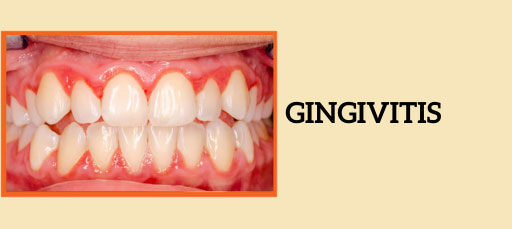
Gingival Inflammation – Symptoms, Causes, Treatment
Gingivitis, often the initial stage of gum disease, is a common but often overlooked oral health concern. Gingival inflammation, Characterized by inflammation of the gums, it can lead to discomfort and, if left untreated, progress into more severe dental issues. Understanding its symptoms, causes, and available treatments is crucial in maintaining good oral hygiene and preventing further complications.
Symptoms of Gingivitis
- Gum Inflammation: Swollen, red, or tender gums are common signs.
- Bleeding Gums: Gums may bleed during brushing or flossing.
- Bad Breath: Persistent bad breath, despite regular oral care.
- Receding Gums: Gums may start to pull away from the teeth.
- Sensitive Gums: Increased sensitivity or discomfort in the gums.
Causes of Gingivitis
- Poor Oral Hygiene: Inadequate brushing and flossing allow plaque to build up.
- Tobacco Use: Smoking or chewing tobacco increases the risk.
- Certain Medications: Some medications can increase susceptibility to gingivitis.
- Hormonal Changes: Such as during pregnancy or menopause.
- Poor Nutrition: A diet lacking in essential nutrients can contribute.
- Genetics: Some individuals may be more predisposed to gum disease.
Treatment and Prevention
- Improved Oral Hygiene: Regular brushing and flossing to remove plaque.
- Professional Dental Cleanings: Regular visits to the dentist for cleanings and check-ups.
- Lifestyle Changes: Quitting smoking and maintaining a balanced diet.
- Antibacterial Mouthwash: To help reduce bacteria in the mouth.
- Scaling and Root Planing: Deep cleaning procedures to remove plaque and tartar.
- Prescribed Medications: In some cases, antibiotics or specific mouth rinses might be recommended.
Prevention Tips
- Daily Oral Care: Brushing twice a day and flossing regularly.
- Healthy Diet: Maintain a balanced diet rich in vitamins and minerals.
- Regular Dental Visits: Schedule routine check-ups and cleanings.
- Avoid Tobacco: Smoking and chewing tobacco can exacerbate gum issues.
- Manage Stress: High stress can impact oral health, so finding ways to manage stress is beneficial.
Conclusion
Gingivitis is a reversible condition if addressed promptly. However, neglecting its symptoms can lead to more severe gum diseases and potential tooth loss. By prioritizing oral hygiene, regular dental check-ups, and a healthy lifestyle, individuals can prevent and manage gingivitis effectively.
Remember, early detection and proactive steps are key to maintaining optimal oral health. If you suspect you might have gingivitis or are concerned about your gum health, consulting with a dentist is the best course of action.
Leave a Reply
Leave a Reply
Explore More Similar Posts
Explore More Blogs


Leave a Reply